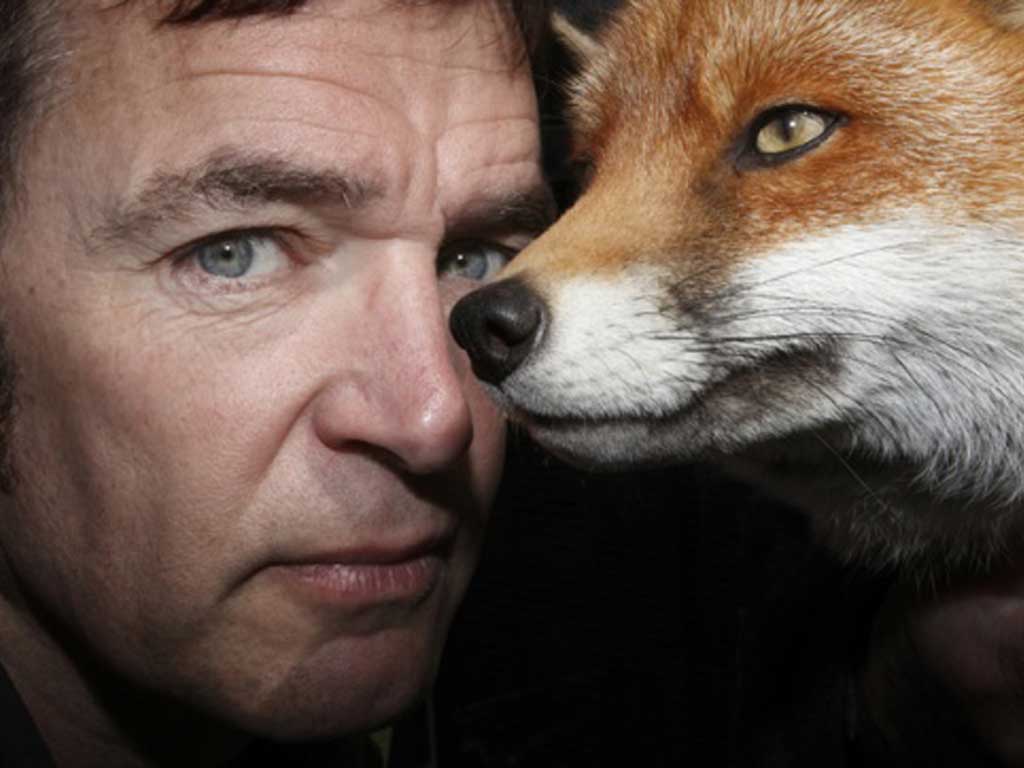Fantastic, Mr Fox: Britain loves urban wildlife
Farmers may not be fans, but a survey shows many townies enjoy a brush with nature

Your support helps us to tell the story
From reproductive rights to climate change to Big Tech, The Independent is on the ground when the story is developing. Whether it's investigating the financials of Elon Musk's pro-Trump PAC or producing our latest documentary, 'The A Word', which shines a light on the American women fighting for reproductive rights, we know how important it is to parse out the facts from the messaging.
At such a critical moment in US history, we need reporters on the ground. Your donation allows us to keep sending journalists to speak to both sides of the story.
The Independent is trusted by Americans across the entire political spectrum. And unlike many other quality news outlets, we choose not to lock Americans out of our reporting and analysis with paywalls. We believe quality journalism should be available to everyone, paid for by those who can afford it.
Your support makes all the difference.They prowl the streets late at night, rifle through our rubbish and leave a quite distinctive stink – yet we love them. Or at least nearly 90 per cent of city dwellers said they do in what is thought to be Britain's largest survey of public attitudes towards the urban fox.
Weeks after Channel 4 launched Britain's first unofficial "fox census" as part of its interactive live broadcast, Foxes Live: Wild in the City, the results are in.
More women than men like them, and the creature is most popular among youngsters and the people of Northern Ireland , where 92 per cent of respondents admitted having a fondness for the fox. This is in contrast with London, where 19 per cent of people voiced a positive dislike.
Around 40,000 foxes are thought to live in urban areas and almost 19,000 sightings have been logged on the programme's website during the past few months. More than 11,000 people responded to the survey, with 89 per cent of city dwellers saying they like foxes and are in favour of them sharing their streets.
Eight out of ten agreed that fox-spotting "enriched" their lives, while more than a third admitted to feeding foxes in their gardens. Only one in ten said the animals should be removed from Britain's cities.
"There is a definite school of thought that foxes are vermin and spread diseases, but what I wasn't expecting was how many people love the idea of wild animals running around a city," said David Dugan, the show's executive producer. "People find that quite a romantic idea."
He did, however, admit that those interested in foxes may have been more likely to respond to the survey.
A spokeswoman for the RSPCA, which helped Channel 4 prepare the study, said that she was "heartened" by the survey results. "It's not surprising that women tend to be more supportive – we see that, on balance, they are slightly more likely to support animal charities."
Recent reports of fox attacks appear to have raised few fears, with only 8 per cent of people voicing concern that they may target pets.
In fact, foxes themselves might be the hidden victims, with respondents saying they are three times more likely to see the animals being chased, attacked and even killed by pets, than the other way round.
Southern England had the highest frequency of sightings, with more than two-thirds of Londoners claiming to see a fox once a week or more.
Dawn Scott, head of the biology and biomedical sciences division at the University of Brighton, backed the Channel 4 effort and said the results would "provide us with a better understanding of the distribution of urban foxes and enable us to produce new population estimates".
Join our commenting forum
Join thought-provoking conversations, follow other Independent readers and see their replies
Comments